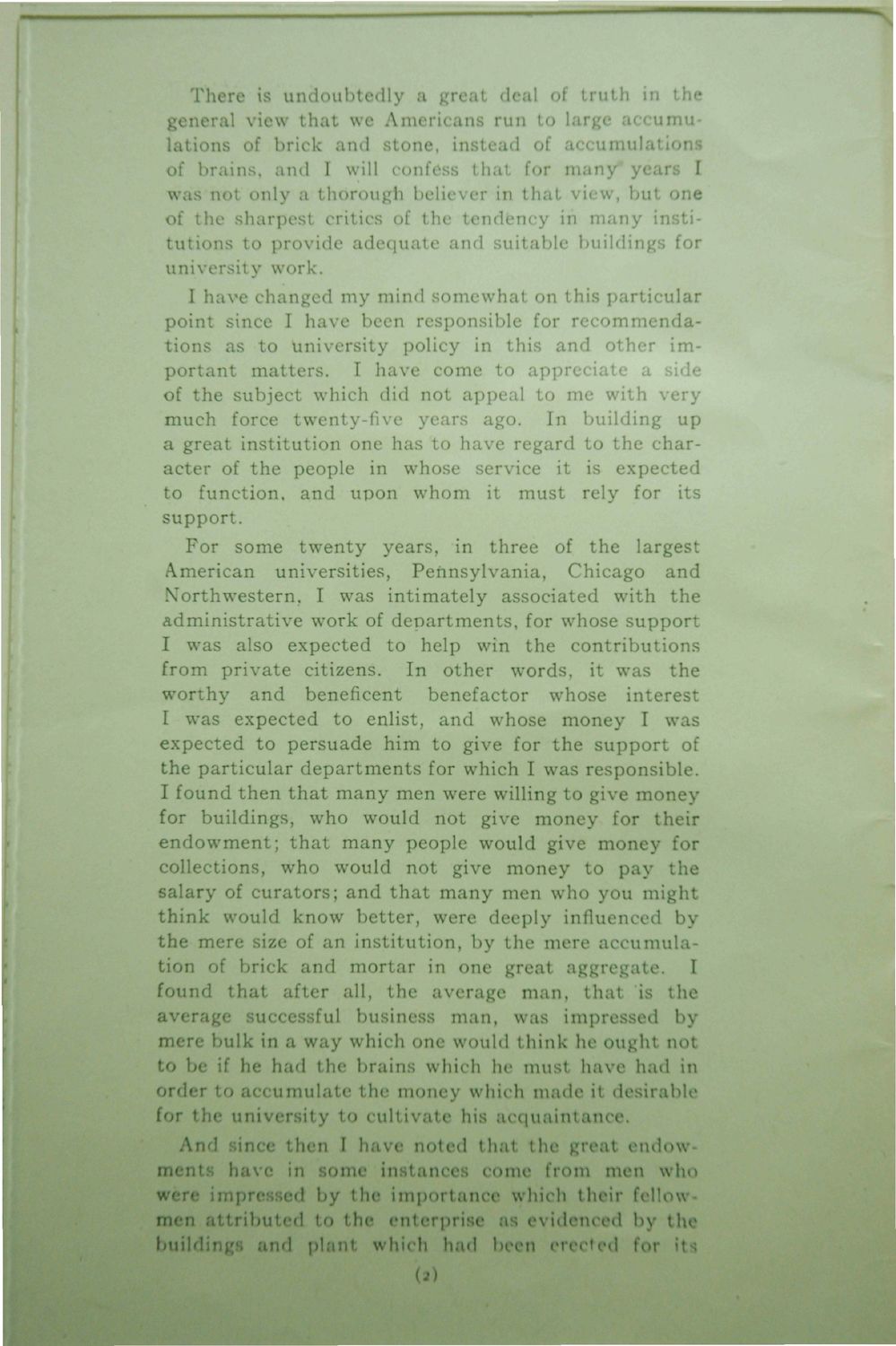| |
| |
Caption: Dedication - New Chemistry Building
This is a reduced-resolution page image for fast online browsing.

EXTRACTED TEXT FROM PAGE:
There is undoubtedly a great deal of truth in the general view that we Americans run to large accumulations of brick and stone, instead of accumulations of brains, and I will confess that for many years I was not only a thorough believer in that view, but one of the sharpest critics of the tendtency in many institutions to provide adequate and suitable buildings for university work. I have changed my mind somewhat on this particular point since I have been responsible for recommendations as to University policy in this and other important matters. I have come to appreciate a side of the subject which did not appeal to me with very much force twenty-five years ago. In building up a great institution one has to have regard to the character of the people in whose service it is expected to function, and upon whom it must rely for its support. For some twenty years, in three of the largest American universities, Pennsylvania, Chicago and Northwestern, I was intimately associated with the administrative work of departments, for whose support I was also expected to help win the contributions from private citizens. In other words, it was the worthy and beneficent benefactor whose interest I was expected to enlist, and whose money I was expected to persuade him to give for the support of the particular departments for which I was responsible. I found then that many men were willing to give money for buildings, who would not give money for their endowment; that many people would give money for collections, who would not give money to pay the salary of curators; and that many men who you might think would know better, were deeply influenced by the mere size of an institution, by the mere accumulation of brick and mortar in one great aggregate. I found that after all, the average man, that is the average successful business man, was impressed by mere bulk in a way which one would think he ought not to be if he had the brains which he must have had in order to accumulate the money which made it desirable for the university to cultivate his acquaintance. And since then I have noted that the great endowments have in some instances come from men who were impressed by the importance which their fellowmen attributed to the enterprise as evidenced by the buildings and plant which had been erected for its (a)
| |